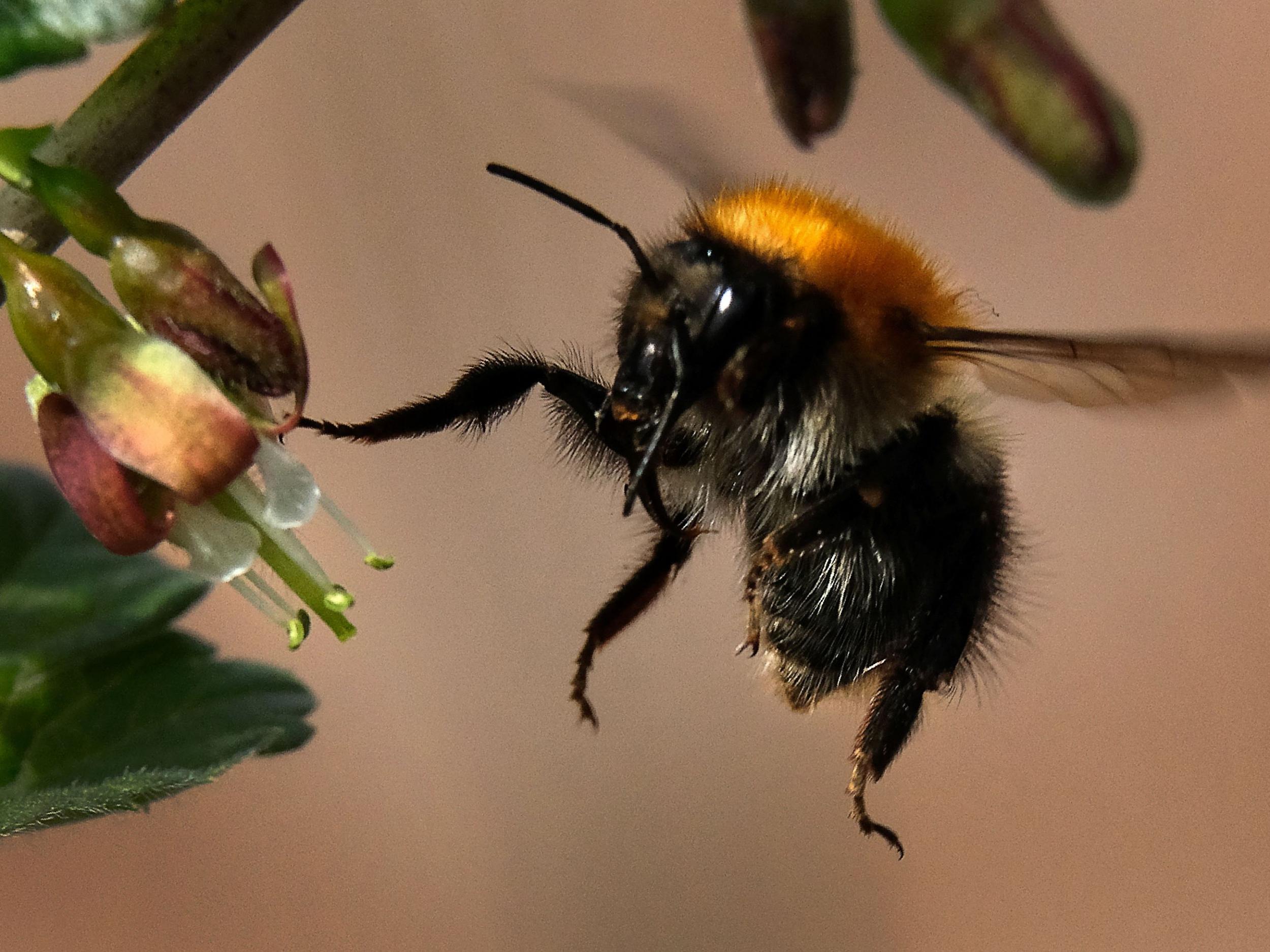Bee-friendly insecticides closer to reality after breakthrough development

Your support helps us to tell the story
From reproductive rights to climate change to Big Tech, The Independent is on the ground when the story is developing. Whether it's investigating the financials of Elon Musk's pro-Trump PAC or producing our latest documentary, 'The A Word', which shines a light on the American women fighting for reproductive rights, we know how important it is to parse out the facts from the messaging.
At such a critical moment in US history, we need reporters on the ground. Your donation allows us to keep sending journalists to speak to both sides of the story.
The Independent is trusted by Americans across the entire political spectrum. And unlike many other quality news outlets, we choose not to lock Americans out of our reporting and analysis with paywalls. We believe quality journalism should be available to everyone, paid for by those who can afford it.
Your support makes all the difference.Insecticides could be developed that kill pests without harming beneficial insects such as bees, according to a new study.
The use of pesticides is currently the subject of much debate, owing to the catastrophic effects chemicals such as neonicotinoids have on the environment, and particularly on the bees we rely on to pollinate crops.
Yet they are also an essential feature of modern agriculture, with the National Farmers Union arguing they are necessary to produce “wholesome, affordable food”.
Environment Secretary Michael Gove recently announced that the UK will support a total ban on bee-harming pesticides, highlighting the urgent need for alternatives.
One could be pesticides that specifically target pests and not bees.
In this new research, published in the Proceedings of the National Academy of Sciences journal, a team of scientists has investigated the natural resistance shown to some insecticides by bumble bees and honey bees, with the goal of applying this in the design of selective pesticides.
Bees are very susceptible to most pyrethroid pesticides, but are resistant to a variety called tau-fluvalinate.
The scientists found that the molecules targeted by pyrethroids in bee cells, so-called sodium channels, are able to resist the effects of tau-fluvalinate.
“For the first time we are showing that unique structural features in bee sodium channels interfere with the binding of tau-fluvalinate to bumble bee sodium channels,” said Professor Ke Dong, an insect toxicologist at Michigan State University and one of the study’s authors.
“This opens the possibility of designing new chemicals that target sodium channels of pests but spare bees.”
By examining the features of pyrethroid binding sites in bees, Dong and her collaborators hope to lay the groundwork for a new generation of pesticides that bees are able to resist, but other insects are not.
“This is an interesting paper on the molecular requirements for sensitivity to a single pyrethroid insecticide,” said Dr Christopher Connolly, a neurobiologist at the University of Dundee who was not involved in the study.
However, this “does not imply that this insecticide is safe to use in our environment, as many other beneficial insect species may still be vulnerable,” he added.
Other insects also provide valuable services in the environment. Flies, for example, are also important pollinators, and they would not necessarily be protected from selective insecticides.
Nevertheless, selective pesticides may be a crucial tool in the coming years, with large corporations like Syngenta already exploring their potential.
“In my opinion, if neonicotinoids are genuinely decreasing bee populations then pesticides that selectively target non-bee species may help to reverse this,” said Dr Andrew Jones, a biologist at Oxford Brookes University who was not involved in the study.
“Whether we like it or not, we need measures to protect our crops and at the moment that will be insecticides, and in the future I’m sure there will be more stringent tests to ensure that they are bee friendly,” said Mr Jones.
Join our commenting forum
Join thought-provoking conversations, follow other Independent readers and see their replies
Comments